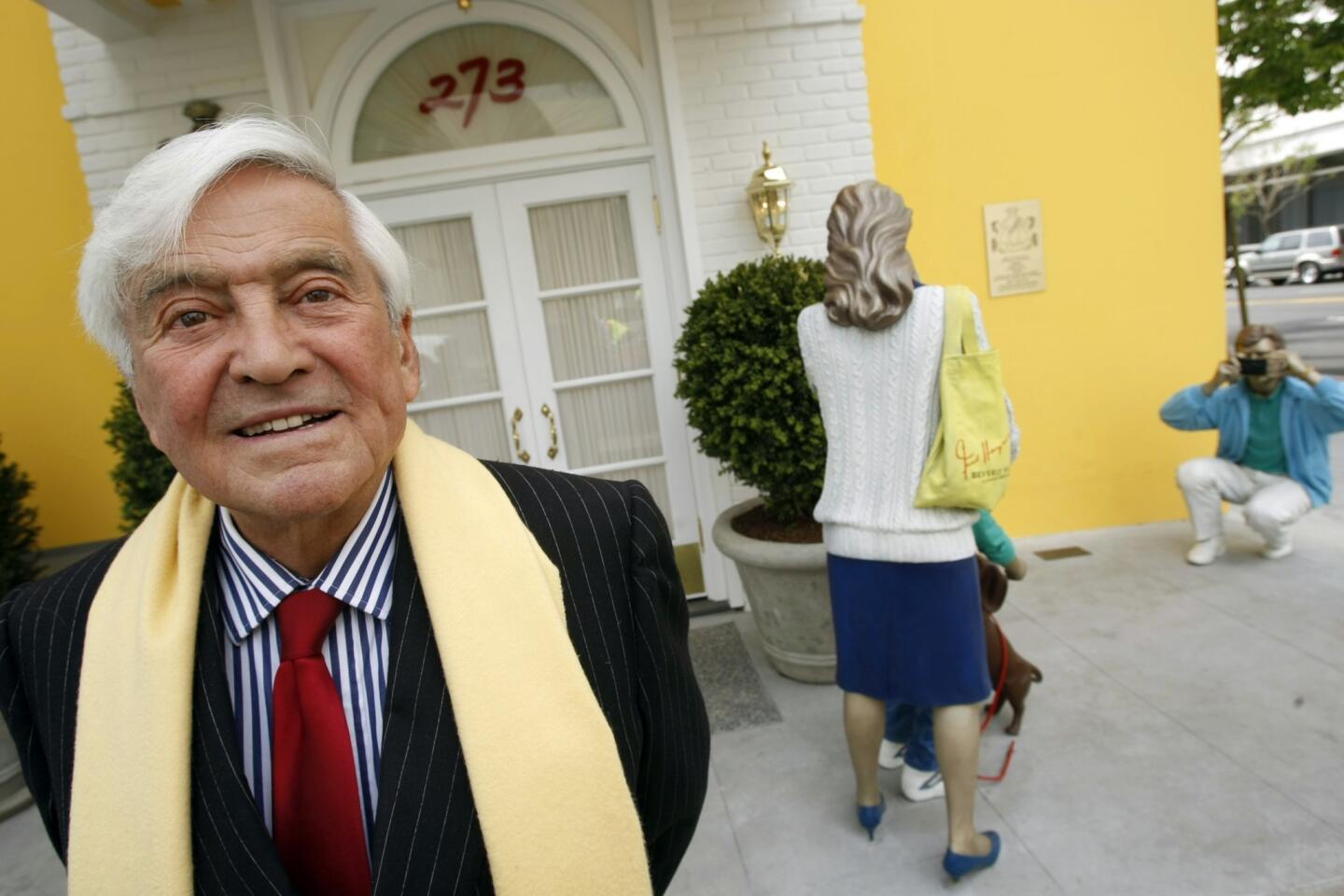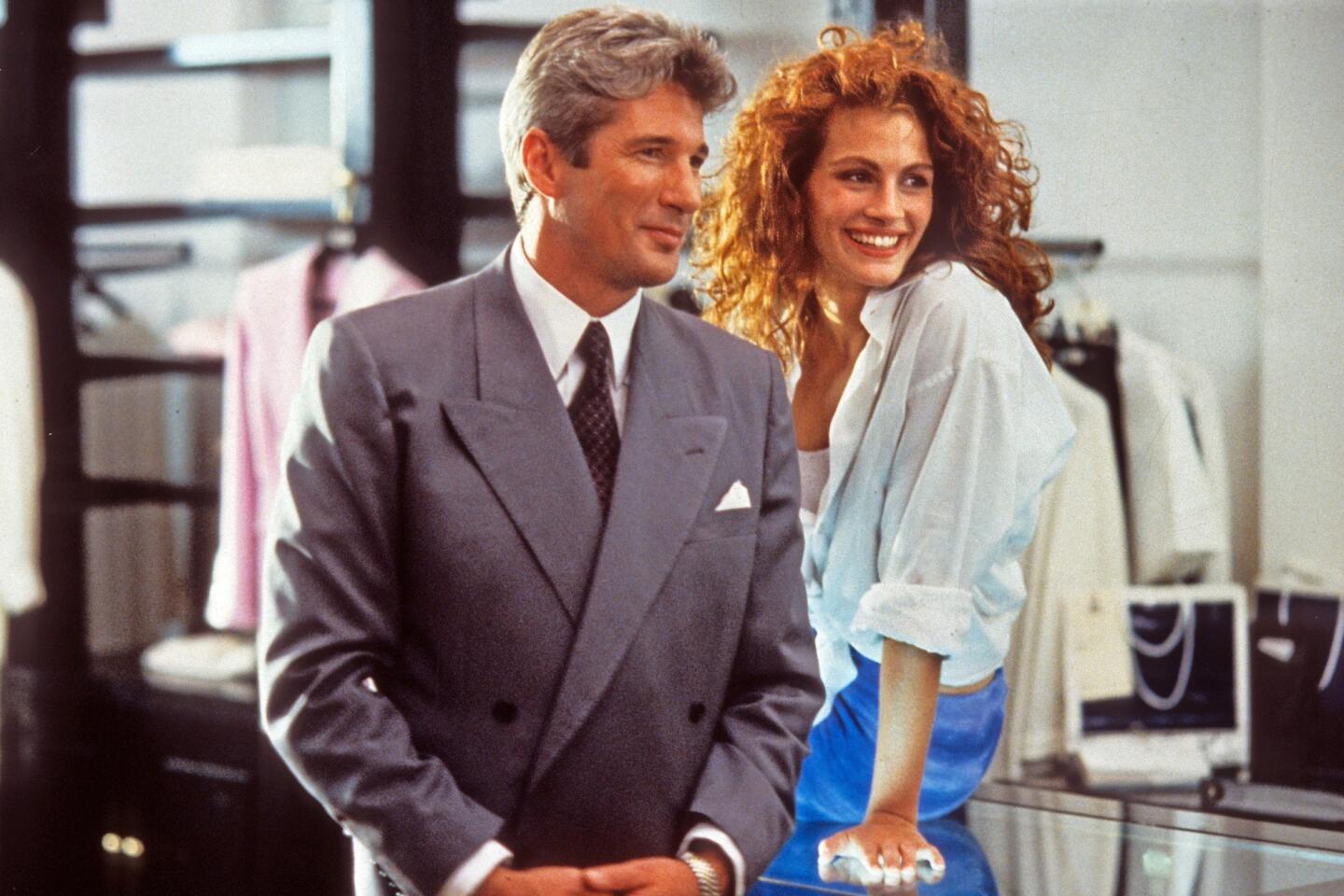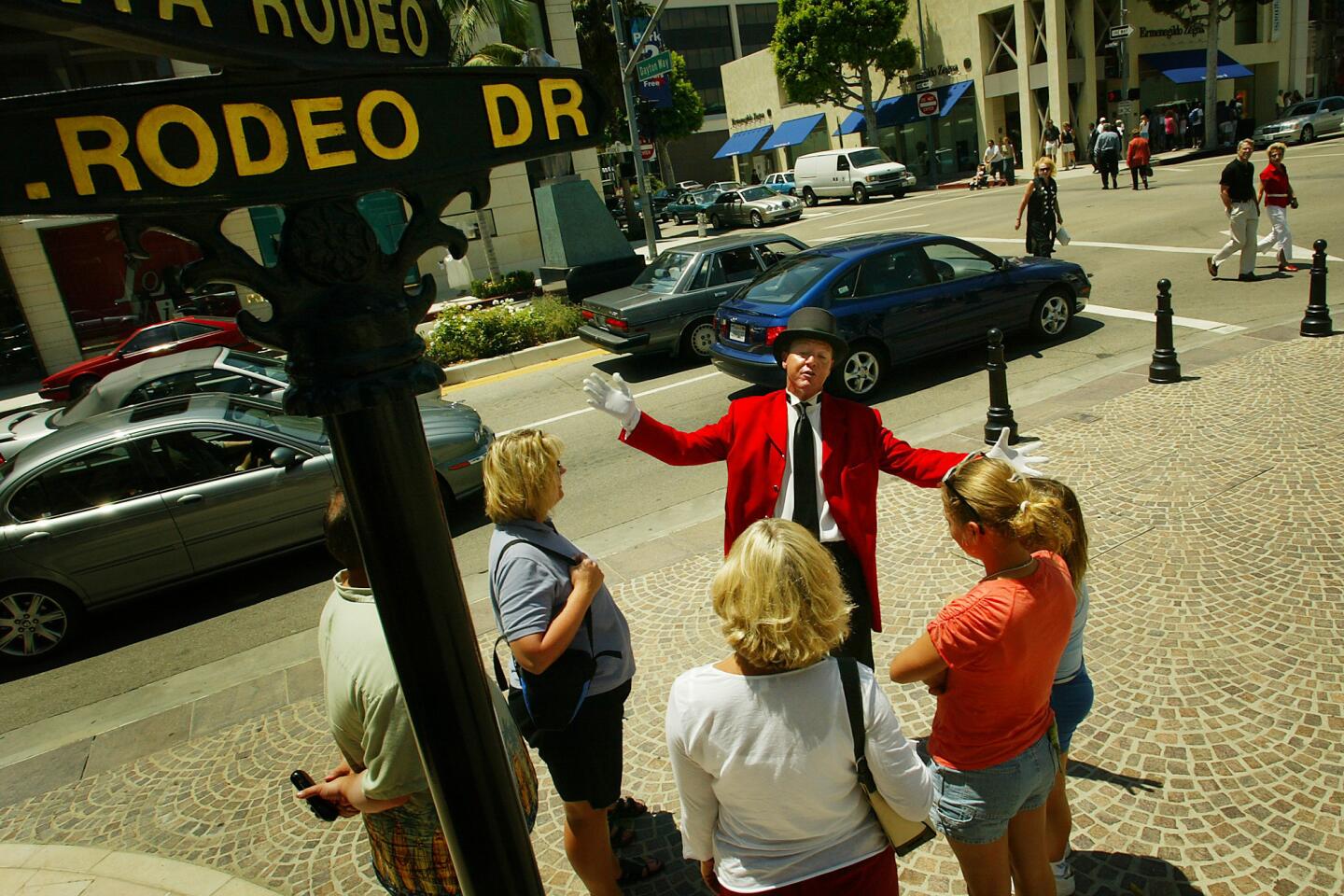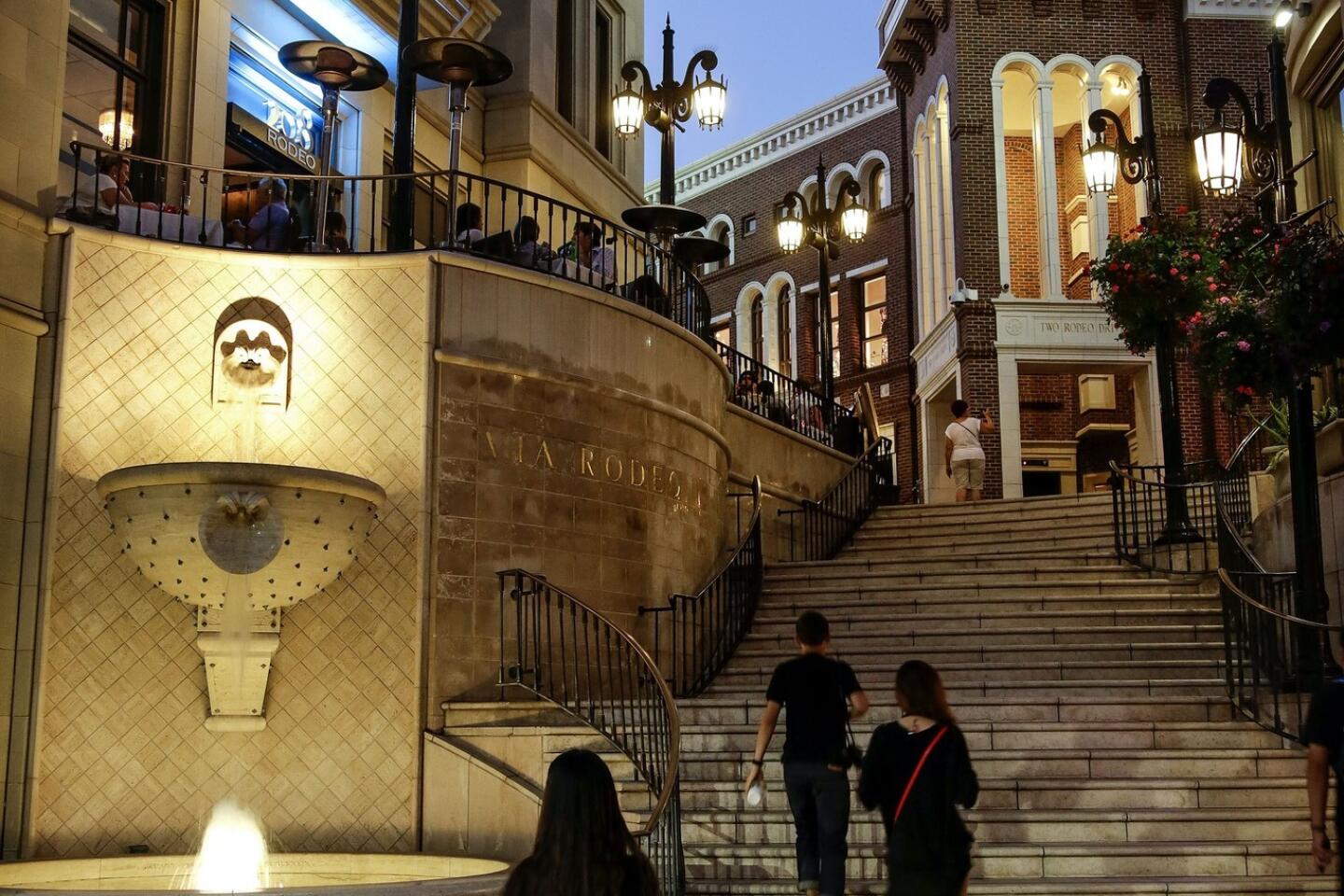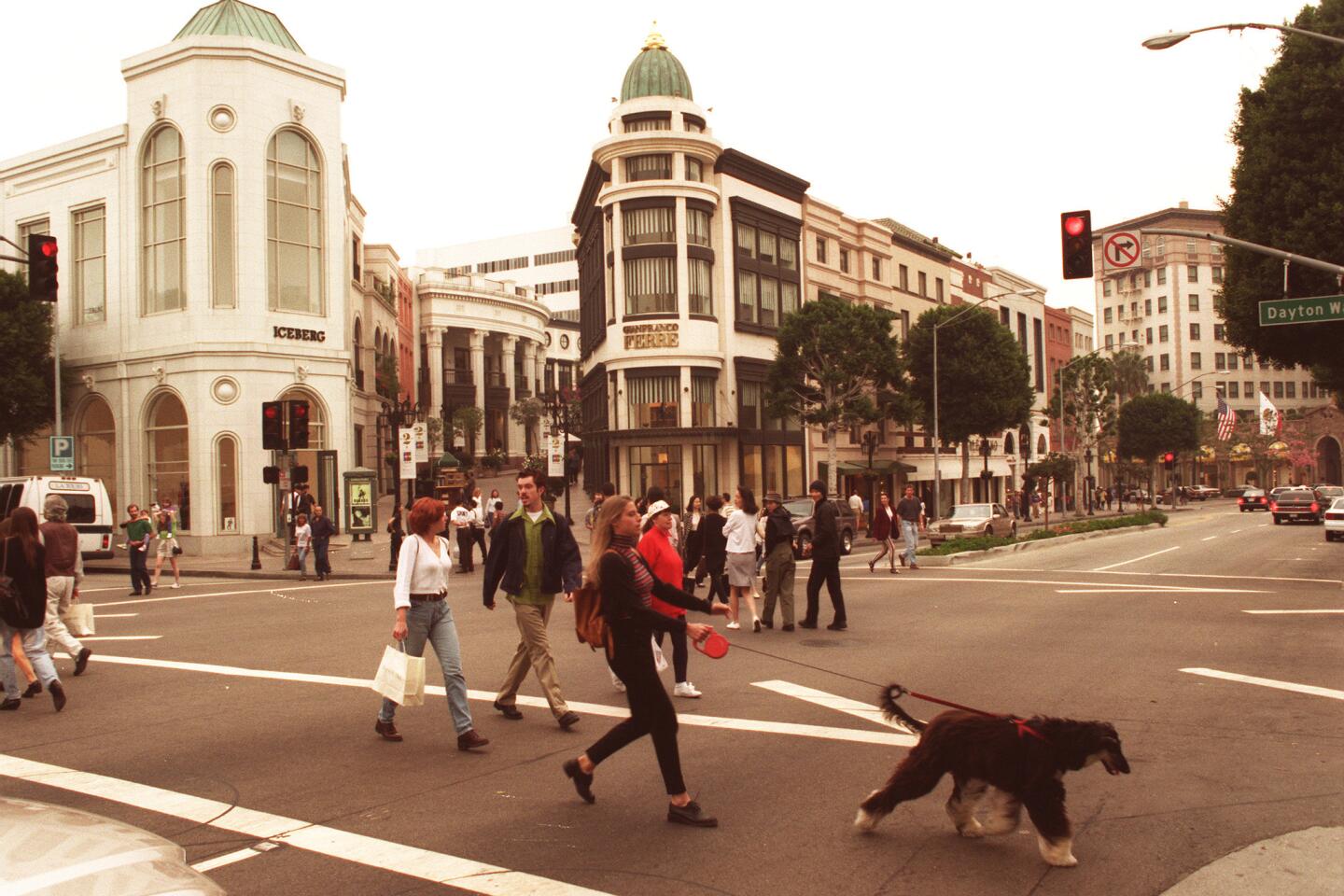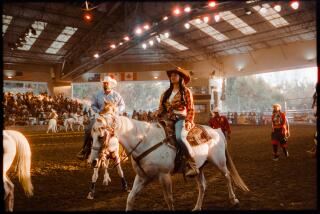A Rodeo Drive timeline
What follows are a few highlights from the history of one of the most famous streets in the world.
1906: Burton E. Grant and other investors buy land on the former Rancho Rodeo de las Aguas. The land will become Beverly Hills, and the city’s main street is named ... Rodeo Drive. It eventually develops into and remains a fairly quiet suburban street with beauty shops, hardware stores, gas stations and bookstores for several decades.
1949: Former Warner Bros. publicist Richard Carroll decides there’s no good place for a man to buy a suit in West Los Angeles. He opens Carroll & Co. on the second floor of a Beverly Hills medical building. A few years later, Carroll & Co. moves to the corner of Rodeo Drive and Little Santa Monica Boulevard.
1967: Fred Hayman opens the Giorgio Beverly Hills boutique. With its iconic yellow-and-white-striped awning, it’s the first high-fashion luxury boutique on the street and quickly becomes a civic landmark where customers can sip cocktails while shopping or have their purchases delivered to their homes by a courier in a Rolls-Royce.
1969: Parisian jeweler Van Cleef & Arpels — known for its commissions issued by European royals and prominent industrialists — opens a flagship store on Rodeo. Forty years later, the French jeweler acknowledges the influence of the Golden State as it launches “California Reverie,” a collection of one-of-a-kind pieces inspired by West Coast icons. (On the “Paysage d’Opal” clip, a large opal is the backdrop for two diamond palm trees, creating a brooch that is priced at about $350,000.)
1970: Vidal Sassoon opens a salon on Rodeo Drive, only his third worldwide. Three years earlier he had ensured a spot in the pop-culture pantheon — flying into Los Angeles from London to cut Mia Farrow’s hair for her role in “Rosemary’s Baby.” Farrow’s pixie cut was copied by women around the world.
1978: The novel “Scruples” by Judith Krantz is released. The book tells the story of a young widow who inherits a vast fortune and opens a boutique on — where else? — Rodeo Drive. The novel is a smash hit, and in 1980 Warner Bros. Television produces a miniseries based on the book.
1981: Hayman launches the Giorgio Beverly Hills fragrance. The launch party is held in Giorgio’s parking lot, under a yellow-and-white-striped tent. More than 70 pounds of caviar are served.
1983: The Rodeo Collection shopping complex of 45 retail boutiques opens. The next year, it is featured in the Brian De Palma thriller “Body Double.” Current stores include La Perla and Stuart Weitzman.
1984: In “Beverly Hills Cop,” one of the first things Detroit policeman Axel Foley (Eddie Murphy) does upon arriving in Beverly Hills is drive down Rodeo Drive. When Axel flirts with a blond in a convertible, moviegoers get a glimpse of the Cartier boutique.
1989: The European-style shopping street Two Rodeo Drive opens. The current lineup of stores includes Lanvin, Versace, Jimmy Choo and Tiffany.
1990: In the film “Pretty Woman,” a “beautiful prostitute” (Julia Roberts) goes shopping on Rodeo Drive and is snubbed by salespeople who are dismayed by her appearance. The next day her “client” (Richard Gere) takes her out on a shopping spree, eventually returning to the shop that snubbed her to remind the clerks of the purchases they could have overseen. Shopping binges in the movies would never be the same.
1990: In “Beverly Hills 90210’s” third episode, “Every Dream Has Its Price (Tag),” Brenda (Shannen Doherty) and Kelly (Jennie Garth) go shopping on Rodeo Drive with Kelly’s old friend Tiffany (Noelle Parker), but drama ensues when the girls learn Tiffany is a shoplifter.
1993: Guess opens the Western-themed Guess? Ranch, the first “down-market” store to open on Rodeo Drive. Other brands more associated with shopping malls than high couture will open shops on the street.
2004: Prada opens a boutique designed by noted architect Rem Koolhaas.
2012: High-end timepiece manufacturer Patek Philippe opens its first U. S. boutique on Rodeo Drive. In the same year, the 99 Cents Only Store proposes opening a store on Rodeo Drive. Other tenants on the storied street are less than enthusiastic about the idea.
—Michael Darling
[For the record, 3:30 p.m. PDT Sept. 9, 2013: A timeline in the Image section on Sept. 8 that traced the history of Rodeo Drive cited Burton E. Grant as one of the investors who in 1906 bought the land that became Beverly Hills. His name was Burton E. Green.]
More to Read
Sign up for The Wild
We’ll help you find the best places to hike, bike and run, as well as the perfect silent spots for meditation and yoga.
You may occasionally receive promotional content from the Los Angeles Times.
